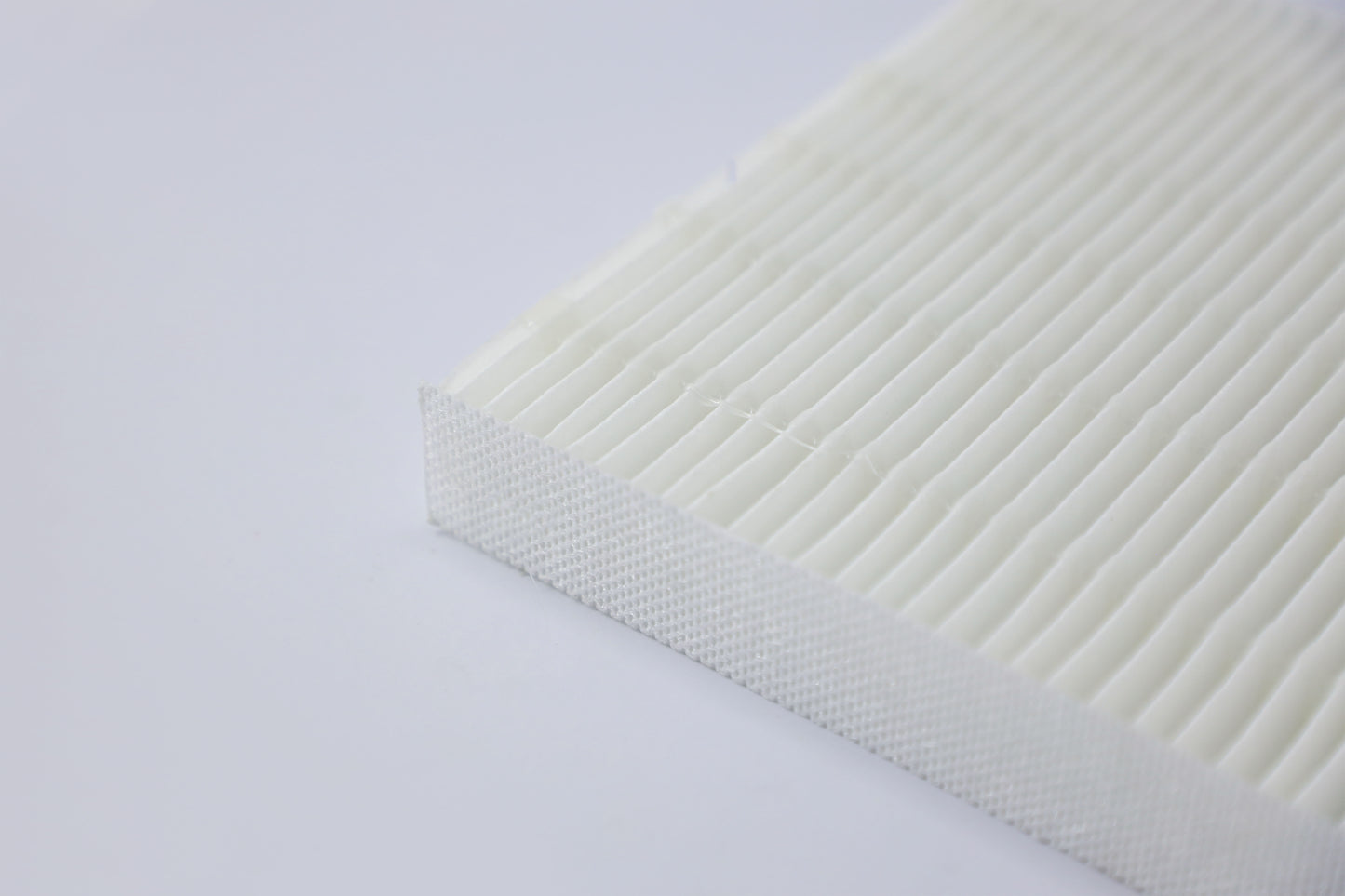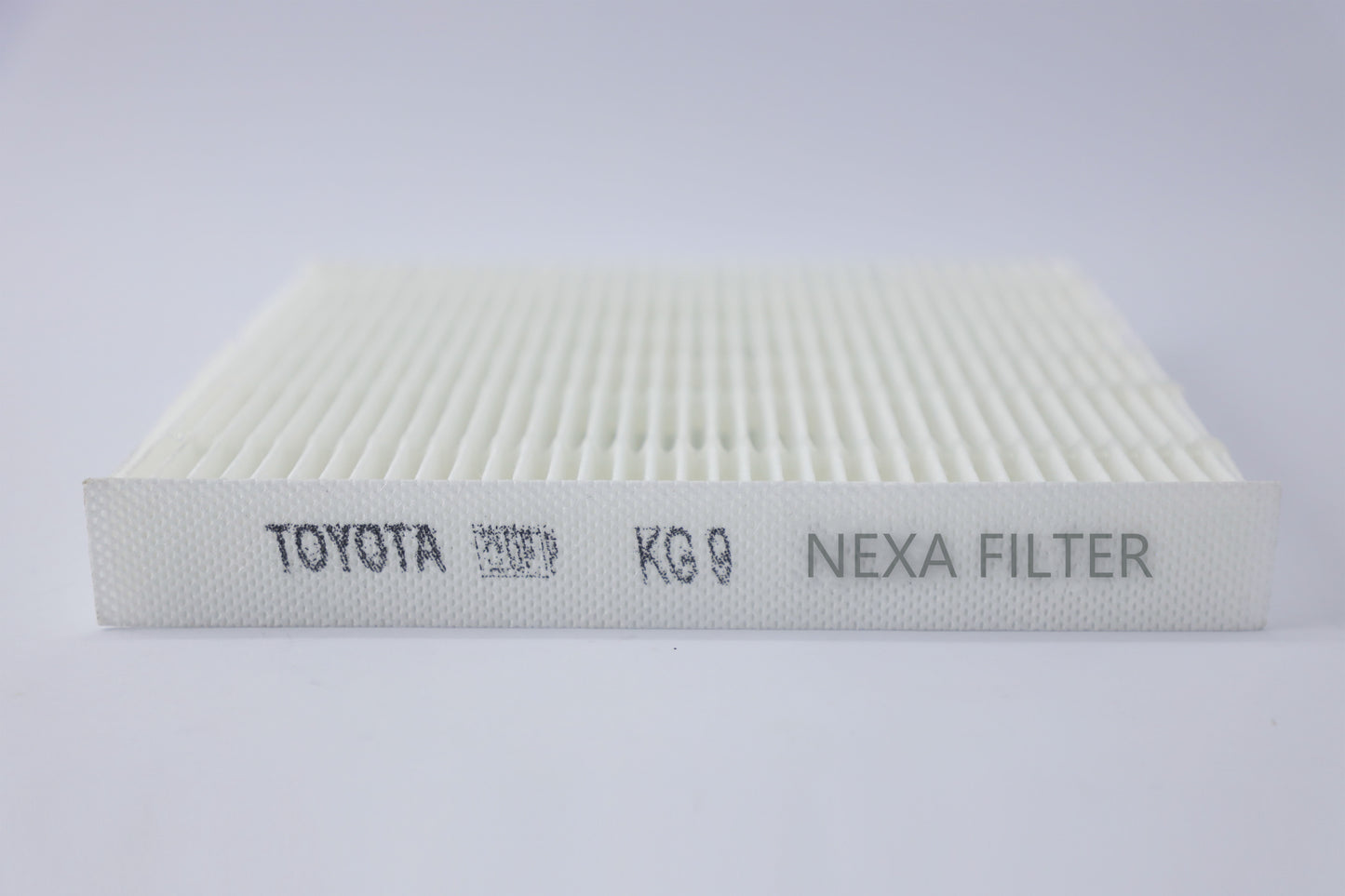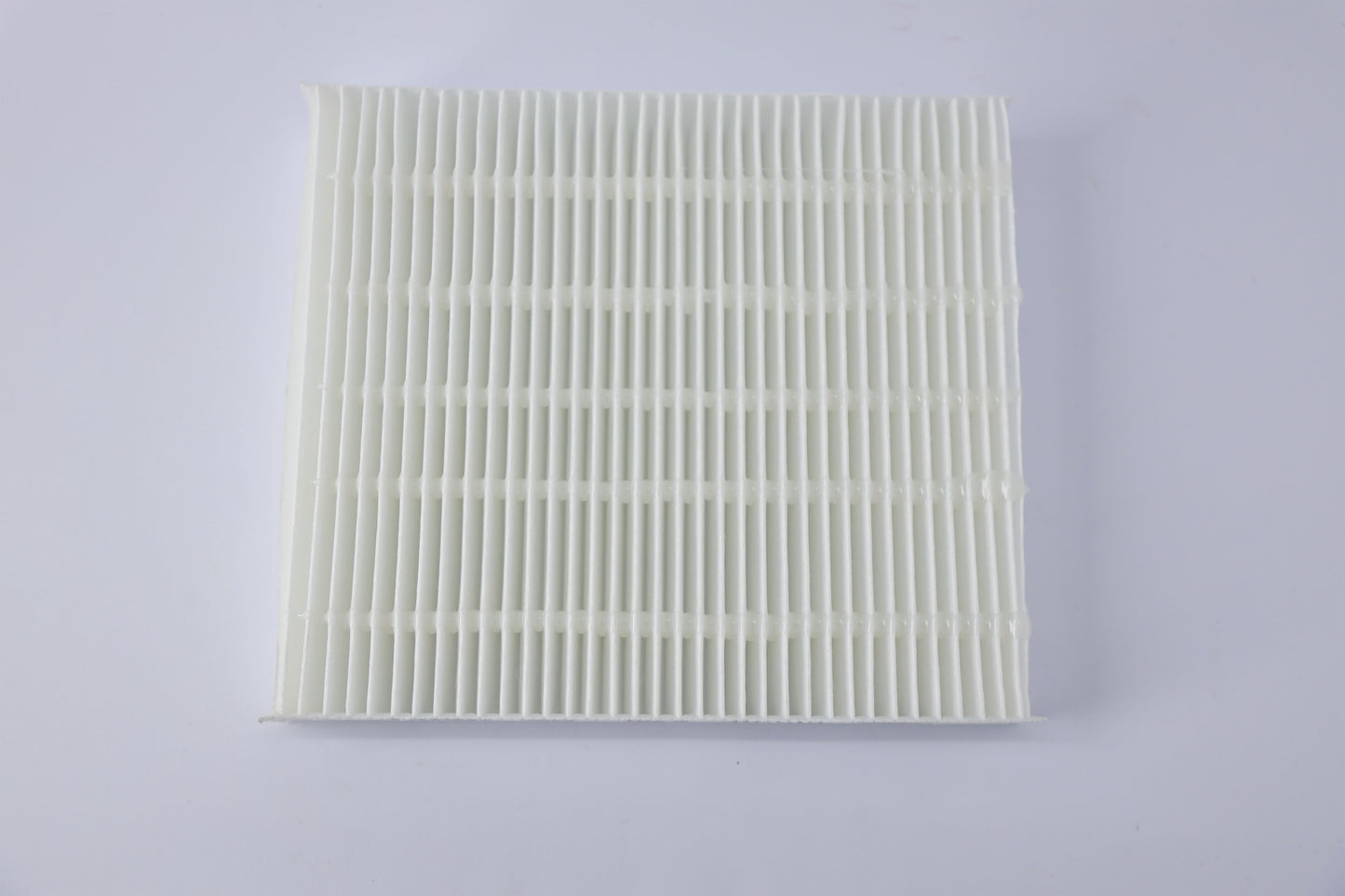My Store
AC FILTER TOYOTA
AC FILTER TOYOTA
Couldn't load pickup availability
87139-30040
Thius AC Cabin Filter is supported for TOYOTA COROLLA (XLI,GLI,ALTIS,GRANDE) , AQUA, VITZ, HILUX, CAMRY, PRIUS, MARK X, SEINTA, YARIS, COROLLA CROSS, CHR.
The AC cabin filter for Toyota vehicles is an essential component in the air conditioning system that ensures the air inside the cabin remains clean and fresh. It works by filtering out dust, dirt, pollen, and other airborne particles before they enter the cabin through the vehicle’s HVAC (Heating, Ventilation, and Air Conditioning) system. The filter also helps improve the efficiency of the air conditioning system and prevents contaminants from damaging internal components.
Key Functions of the AC Cabin Filter:
-
Air Filtration:
- The AC cabin filter’s primary function is to trap contaminants like dust, dirt, pollen, soot, and other pollutants from the outside air before it enters the cabin. This helps provide clean and breathable air for passengers, reducing the intake of harmful substances.
-
Prevents Allergens:
- For individuals with allergies or respiratory issues, the cabin filter plays an important role in reducing the amount of allergens (such as pollen or dust mites) in the air. This can significantly improve comfort during driving.
-
Reduces Odors:
- A well-maintained AC cabin filter can help reduce unpleasant odors that may come from the outside environment, such as vehicle exhaust, road dust, or other environmental smells. Some filters come with activated charcoal or other materials that help neutralize odors.
-
Protects the Air Conditioning System:
- The AC cabin filter protects the internal components of the air conditioning system, such as the evaporator and blower motor, from becoming clogged with dust and debris. This prevents damage to the system and prolongs its lifespan.
-
Improves Air Conditioning Efficiency:
- A clean cabin filter allows for better airflow through the air conditioning system, ensuring that the HVAC system operates more efficiently. When the filter is clogged, it can restrict airflow, causing the air conditioning system to work harder and reducing its cooling performance.
Construction of the AC Cabin Filter:
The Toyota AC cabin filter is typically made from pleated paper, synthetic fibers, or activated carbon. These materials help trap airborne particles, while the pleated design maximizes the surface area of the filter, increasing its capacity to capture contaminants. Some filters may also incorporate activated charcoal or carbon to absorb and neutralize odors.
Signs the AC Cabin Filter Needs Replacing:
-
Reduced Airflow:
- If the airflow from the air conditioning system has decreased significantly, it could be due to a clogged cabin filter. Restricted airflow reduces the effectiveness of the AC and causes it to work harder.
-
Unpleasant Odors:
- If there are foul or musty odors coming from the air vents, it may be a sign that the cabin filter is dirty or moldy. This could also indicate that the filter is no longer effectively trapping contaminants.
-
Allergy Symptoms:
- Increased allergy symptoms, such as sneezing, congestion, or itchy eyes, when using the air conditioning could indicate that the filter is no longer capturing allergens effectively.
-
Reduced Cooling Efficiency:
- A clogged AC cabin filter can reduce the efficiency of the air conditioning system, leading to less cooling and uncomfortable cabin temperatures, especially in warmer weather.
Maintenance and Replacement:
-
The AC cabin filter in Toyota vehicles should generally be replaced every 5,000 to 10,000 kilometers (or as recommended by the manufacturer), though this can vary depending on driving conditions (e.g., in dusty or polluted areas, more frequent replacement may be necessary).
-
Steps to replace the AC cabin filter:
- Locate the filter housing: The filter is typically located behind the glove compartment, under the dashboard, or near the cabin air intake area.
- Remove the old filter: Open the filter compartment and remove the old filter. Be careful not to allow any dust or debris to fall into the system.
- Clean the housing: It’s a good idea to clean the filter housing and remove any dirt or debris before inserting the new filter.
- Insert the new filter: Place the new filter in the housing, ensuring it is positioned in the correct orientation for proper airflow.
- Reassemble: Close the housing and reassemble any components that were removed, such as the glove compartment.
Benefits of Regular AC Cabin Filter Replacement:
-
Improved Cabin Air Quality:
- Regular replacement of the cabin filter ensures that the air inside the vehicle remains clean and free from harmful contaminants, allergens, and odors.
-
Enhanced Air Conditioning Efficiency:
- A clean filter allows the HVAC system to operate at optimal efficiency, providing better airflow and more effective cooling, especially during hot weather.
-
Prevents System Damage:
- Regularly changing the cabin filter helps prevent dirt and debris from entering the air conditioning system, which can reduce the risk of component damage and costly repairs.
-
Improved Comfort for Passengers:
- Clean air inside the cabin improves overall comfort for passengers, especially for those with allergies, respiratory issues, or sensitivities to odors.
-
Longer System Lifespan:
- By keeping the air conditioning system clean and free from debris, the lifespan of the HVAC system is extended, reducing the likelihood of breakdowns.
Conclusion:
The AC cabin filter for Toyota vehicles is an essential part of the air conditioning system that ensures the air inside the cabin remains clean, fresh, and comfortable for passengers. Regular maintenance and timely replacement of the AC filter help maintain air quality, improve HVAC efficiency, prevent odors, and protect the system from damage. Replacing the filter at the recommended intervals ensures that the air conditioning system continues to operate efficiently, providing a pleasant driving experience.
Share






